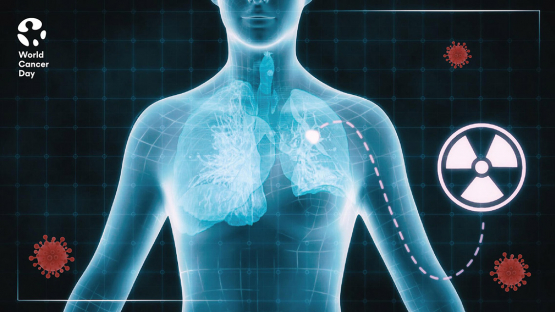Recognizing the challenges presented by the COVID‐19 pandemic and rallying efforts under the theme, ‘I am and I will,’ this year’s World Cancer Day provides an opportunity to commend medical professionals, caregivers, policy makers, researchers and advocates whose work continued unabated, despite the global pandemic.
The goal of World Cancer Day, 4 February, is to raise awareness of cancer and catalyse action towards a future free of the disease. The global cancer burden has risen to 19.3 million cases and 10 million cancer deaths in 2020, an increase from 18.1 million cases and 9.6 million deaths in 2018, according to the latest research from International Agency for Research on Cancer (IARC). Much of this increase has been in developing countries, which the research indicates will continue to experience the greatest relative increases in cancer incidence by 2040.
Through its Programme of Action for Cancer Therapy, the Human Health Programme and the technical cooperation programme, the IAEA helps counterparts and specialists around the world to enhance their clinical capacities, deploy new technologies, implement best practices and expand access to life-saving services, while maintaining patient and staff safety.







